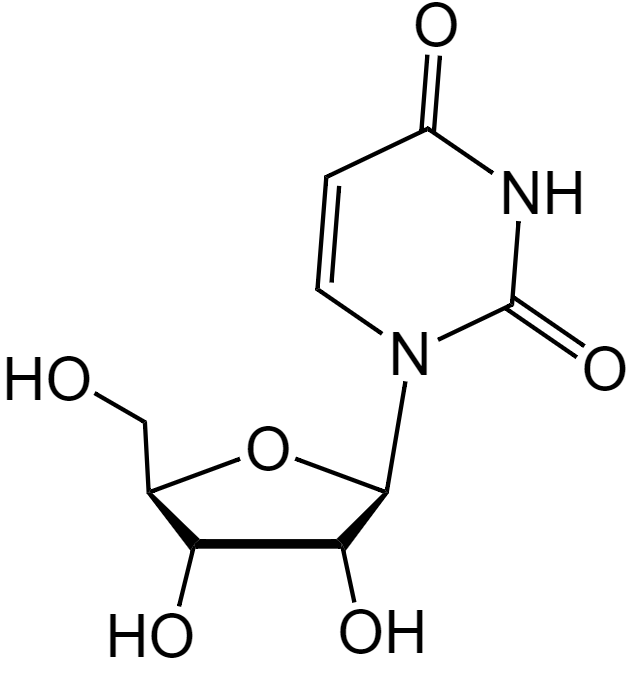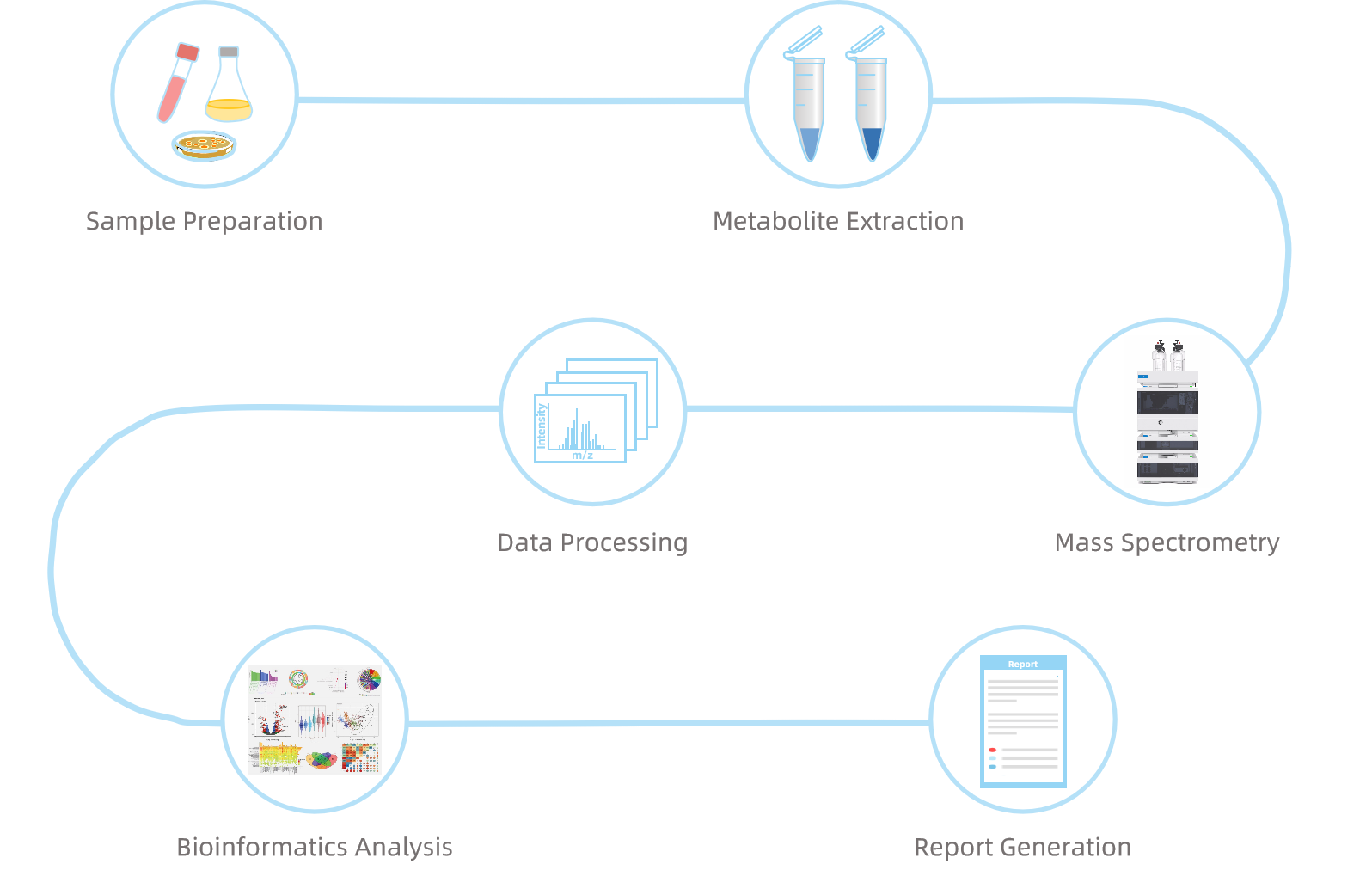Uridine Analysis Service
- State-of-the-art HPLC-MS/MS systems
- Highly experienced analytical team
- Rigorous data analysis and quality control
- Comprehensive report with both raw data, processed data and interpretation of the results
- Competitive pricing and fast turnaround time
- Investigation of the role of uridine in disease etiology
- Understanding the metabolic pathways involving uridine
- Drug discovery and development
- Animal tissue ≥ 100 mg
- Plant tissue ≥ 200 mg
- Serum/ Plasma ≥ 200 μL
- Urine ≥ 2 mL
Uridine is a key ribonucleoside that consists of the pyrimidine base uracil linked to a ribose sugar. It is one of the four fundamental nucleosides found in RNA, playing a critical role in RNA synthesis, cellular metabolism, and the regulation of gene expression. Uridine serves as a building block for RNA, pairing with adenine during the transcription process, ensuring the accurate transmission of genetic information from DNA to functional RNA molecules.
In addition to its role in RNA synthesis, uridine participates in several essential metabolic pathways. It is a key precursor in the synthesis of pyrimidine nucleotides and is involved in the biosynthesis of membrane phospholipids, glycoproteins, and glycogen. Uridine's influence extends to brain function, where it is involved in promoting synaptic plasticity, cognitive function, and memory formation. Consequently, uridine has been investigated as a potential therapeutic agent for neurodegenerative diseases, such as Alzheimer's disease, due to its neuroprotective properties.
Uridine metabolism is tightly regulated, and disturbances in its pathways can be indicative of various metabolic disorders and diseases. Elevated or deficient uridine levels have been associated with conditions such as liver disease, cancer, and inherited metabolic disorders. For instance, abnormal uridine metabolism can contribute to disruptions in nucleotide homeostasis, affecting DNA repair and cell proliferation, which are crucial in cancer development.

Figure 1. The Structure of Uridine
The study of uridine and its derivatives is essential for understanding its broad physiological roles and the potential therapeutic applications it offers. Accurate quantification of uridine levels in biological samples provides valuable insights into its involvement in various biochemical processes and disease mechanisms.
MtoZ Biolabs offers a highly sensitive Uridine Analysis Service using cutting-edge HPLC-MS/MS techniques. Our service enables researchers to accurately measure uridine concentrations in biological samples, supporting investigations into metabolic disorders, neurobiology, and cancer research. With our reliable data, researchers can advance their understanding of uridine's role in health and disease.
Analysis Workflow

Service Advantages
Applications
Our service has a wide range of applications, including but not limited to:
Sample Submission Requirements
1. Sample Types
Serum, plasma, urine, tissues, and other biological samples.
2. Sample Volume
3. Storage and Shipping
Samples should be stored at -80℃ and shipped with dry ice.
Note: Please provide details on sample collection and handling.
Deliverables
1. Experimental Procedures
2. Relevant Liquid Chromatography and Mass Spectrometry Parameters
3. Detailed Information on Uridine
4. Raw Data
5. Custom Analysis Report
Choose MtoZ Biolabs for your uridine analysis needs to unlock the potential of your research. For more information about our services, please contact us.
How to order?







